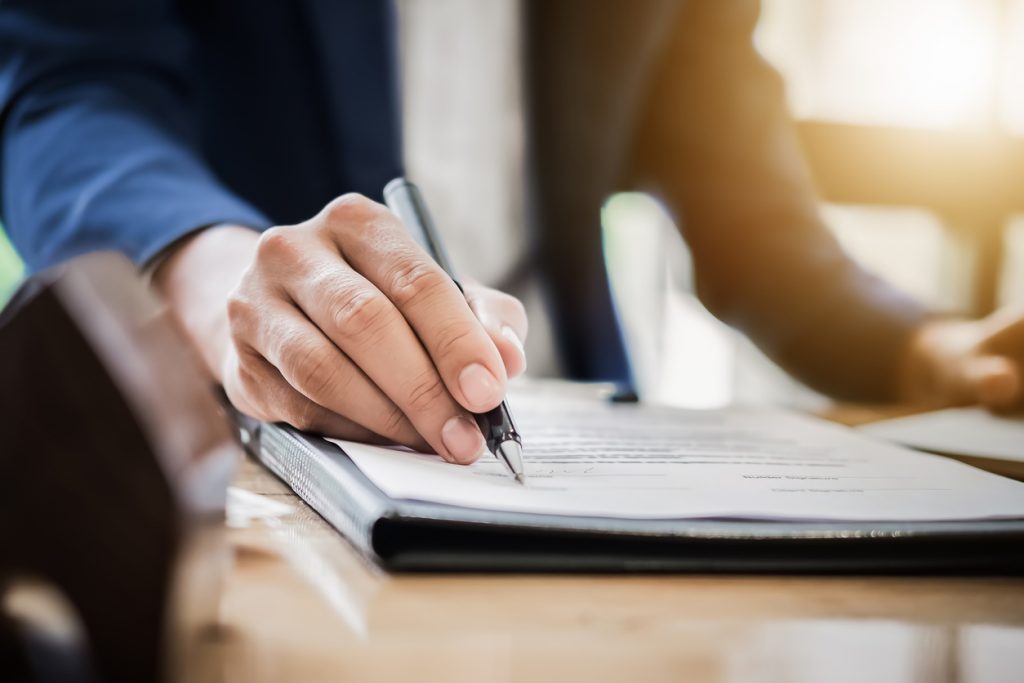What to Do If You’re in a Car Accident
If you’ve ever been in a car accident, you know that it can be a frightening and confusing experience. In the aftermath of a crash, it’s important to stay calm and take the following steps to ensure your safety and protect your legal rights. Whether you’re the driver, a passenger, or a pedestrian, knowing what to do after a car accident can make all the difference.
1. Stay Calm and Ensure Your Safety
In the immediate aftermath of a car accident, it’s natural to feel shaken and disoriented. However, it’s crucial to stay calm and collect your thoughts. First and foremost, check yourself for any injuries. If you’re able to move, carefully exit the vehicle and check on your passengers. If you or anyone else is injured, call 911 immediately. Even if you don’t feel injured, it’s important to seek medical attention as soon as possible. Some injuries may not be immediately apparent. Moreover, getting checked out by a doctor will provide you with documentation of any injuries you may have sustained.
Once you’ve ensured your safety and the safety of your passengers, move your vehicle to the side of the road, if possible. This will help to prevent further accidents and allow emergency vehicles to access the scene. If you’re unable to move your vehicle, stay inside and wait for help to arrive.
If you have a cell phone, call the police to report the accident. Be sure to provide the dispatcher with your location, the number of vehicles involved, and any injuries that have occurred. If there are any witnesses, get their contact information. This information will be invaluable to the police when they arrive and begin their investigation.
While you’re waiting for the police to arrive, take some time to gather information about the other driver(s) involved in the accident. This includes their name, contact information, insurance information, and license plate numbers. You should also take pictures of the damage to both vehicles. This documentation will be helpful when you file an insurance claim.
Once the police arrive, they will investigate the accident and complete a police report. Be sure to provide the officer with all of the information you have gathered. The police report will serve as an official record of the accident and will be helpful in the event of any legal disputes.
Following these steps will help you to stay safe and protect your legal rights in the aftermath of a car accident. Remember, the most important thing is to stay calm and take care of yourself and your passengers.
If You Find Yourself in a Car Accident
Remaining composed after being involved in a car wreck is easier said than done. Nonetheless, maintaining your composure might be essential. After the accident, here are some actions you may take to protect your health, rights, and property.
## Stay Calm and Check for Injuries
If you’re able, check yourself and any passengers for injuries. Even if you feel fine, it’s important to seek medical attention as some injuries, such as whiplash, may not show up right away. Call 911 immediately if someone is seriously hurt.
In the aftermath of a collision, it’s essential to prioritize safety. Pull over to the side of the road or a safe location if possible. Once you’re out of harm’s way, turn on your hazard lights and check yourself and your passengers for injuries.
If you or someone else is severely injured, don’t hesitate to call 911. While waiting for help to arrive, try to stay calm and provide as much information as possible to the dispatcher.
If in a Car Accident
If you’re ever involved in a car accident, it’s important to stay calm and follow these steps to stay safe. Staying calm can sometimes be easier said than done, especially after a scary event like a car accident. However, a clear mind can help you avoid making mistakes or missing important steps.
First, if possible, move your car to a safe location off the road. This will help to prevent further accidents and make it easier for emergency vehicles to reach you. If you’re unable to move your car, turn on your hazard lights and stay inside the vehicle until help arrives.
Check for Injuries
Once you’re in a safe location, check yourself and your passengers for injuries. If you or anyone else is injured, call 911 immediately. Even if you don’t think you’re injured, it’s important to get checked out by a doctor, as some injuries may not be immediately apparent.
Exchange Information
Once you’ve checked for injuries, exchange information with the other driver(s) involved in the accident. This includes your name, address, phone number, insurance information, and license plate numbers. It’s also a good idea to take pictures of the damage to both vehicles. This will help to document the accident for insurance purposes.
Report the Accident
In most states, you’re required to report any accidents that result in injuries or property damage. You can do this by filing a police report or by reporting the accident to your insurance company. If you’re not sure what to do, contact your local police department for assistance.
Get a Copy of the Police Report
If you file a police report, you should get a copy of the report for your records. This report will contain important information about the accident, such as the names of the drivers involved, the time and location of the accident, and the officer’s opinion on who was at fault. You may need this report for insurance purposes or if you decide to file a lawsuit.
If You’ve Been in a Car Accident: What to Do
The aftermath of a car accident can be overwhelming. If you find yourself in this situation, it’s imperative to remain calm and take the necessary steps to protect yourself and your rights. Here’s a comprehensive guide to help you navigate the process.
Call the Police
Even if the accident seems insignificant, it’s crucial to call the police and file a report. This report will serve as invaluable evidence for insurance companies and legal claims. By providing a detailed account of the incident, including the time, location, and involved parties, you’re creating a foundation for future proceedings.
Exchange Information
Once you’ve contacted the police, it’s essential to exchange information with the other drivers involved in the accident. This includes:
Document the Scene
Thoroughly documenting the accident scene will strengthen your case. Take photos of the damage to all vehicles, including dents, scratches, and broken glass. Capture images of the surroundings, including road conditions, weather, and any obstructions. If possible, draw a sketch of the accident scene, noting the positions of the vehicles involved.
Seek Medical Attention
Even if you don’t feel injured, it’s imperative to seek medical attention as soon as possible. Adrenaline can mask injuries, and some symptoms may not manifest until later. A medical examination will rule out any hidden injuries and provide documentation for insurance purposes.
Contact Your Insurance Company
Notify your insurance company about the accident as soon as you can. The sooner they’re informed, the faster they can begin the claims process. Provide them with all the details of the incident, including the police report number and any other relevant information you’ve gathered.
Consider Legal Advice
If you’ve suffered significant injuries or property damage, consider seeking legal advice. An attorney can help you understand your rights, navigate the legal process, and pursue compensation for your losses. They will advise you on your options and represent your interests throughout the legal proceedings.
Additional Tips
Here are some additional tips to keep in mind if you’re involved in a car accident:
Remember, the aftermath of a car accident can be challenging, but knowing your rights and taking the necessary steps will help you navigate the process effectively.
If in a Car Accident?
If you’re in a car accident, it’s natural to feel shaken up. But it’s important to stay calm and collected so you can take the necessary steps to protect yourself and your interests. One of the most important things you can do is to exchange information with the other driver(s) involved in the accident.
Exchange Information
Get the following information from the other driver(s) involved in the accident:
- Name
- Address
- Phone number
- Insurance company
- Policy number
It’s also a good idea to get the names and contact information of any witnesses to the accident. If there are any injuries, be sure to call 911 immediately. Once you’ve exchanged information, you can then report the accident to your insurance company.
If in a Car Accident: What to Do Next
If you’re ever involved in a car accident, it’s important to know what to do next. The first few minutes after an accident can be chaotic, but staying calm and taking the right steps can make a big difference. Here are a few important things to do if you’re ever in an accident.
Stay Calm and Check for Injuries
After an accident, it’s natural to feel shaken up. But it’s important to stay calm and assess the situation. First, check yourself for injuries. If you’re able to move, get out of the car and check on your passengers. If you or anyone else is injured, call 911 immediately.
Exchange Information
Once you’ve checked for injuries, it’s important to exchange information with the other driver(s) involved in the accident. This includes your name, address, phone number, insurance information, and license numbers. You should also get the names and contact information of any witnesses.
Document the Scene
It’s important to document the accident scene as thoroughly as possible. Take photos of the damage to your car and the other vehicles involved in the accident. If there are any visible injuries, take photos of those as well. You should also write down any notes about the accident, such as the time, location, and what happened.
Report the Accident
In most states, you’re required to report any accident to the police. Even if the accident is minor, it’s still a good idea to file a police report. This will help to create a record of the accident and protect your rights.
Contact Your Insurance Company
After you’ve reported the accident to the police, you should contact your insurance company. They will need to know about the accident so they can start the claims process. Your insurance company will also be able to provide you with guidance on what to do next.
Seek Medical Attention
Even if you don’t feel injured, it’s important to seek medical attention after an accident. Some injuries, such as whiplash, may not be immediately apparent. Seeing a doctor will help to ensure that you get the treatment you need and that your injuries are properly documented.
Hire an Attorney
If you’ve been seriously injured in an accident, you may want to consider hiring an attorney. An attorney can help you to protect your rights and get you the compensation you deserve. An experienced attorney will also be able to guide you through the legal process and help you to avoid common pitfalls.
If in a Car Accident: A Comprehensive Guide to Navigating the Aftermath
Get Medical Attention
After a car accident, your health should be your top priority. Even if you feel uninjured, it’s crucial to seek medical attention as soon as possible. Hidden injuries, such as whiplash, concussions, and internal bleeding, may not manifest immediately. A doctor can conduct thorough examinations, including X-rays and CT scans, to diagnose any potential injuries and provide appropriate treatment.
Document the Accident
Thorough documentation is essential for insurance claims and potential legal proceedings. Exchange information with the other driver, including names, contact details, insurance information, and license numbers. Take photos of the accident scene, including any vehicle damage, injuries, and the surrounding area. Obtain a copy of the police report, if applicable.
Contact Your Insurance Company
Promptly notify your insurance company about the accident. Provide them with all the details, including the other driver’s information, the time and location of the accident, and any injuries or damages. They will guide you through the claims process and help you secure compensation for your losses.
Hire an Attorney (Optional)
In some cases, hiring an attorney can be beneficial. If the accident was serious, involved multiple vehicles, or resulted in significant injuries, consider seeking legal counsel. An attorney can handle negotiations, insurance disputes, and potential legal proceedings, ensuring your rights are protected.
Seek Emotional Support
Car accidents can be traumatic experiences that leave you feeling shaken and overwhelmed. Seek emotional support from friends, family, a therapist, or a support group. Talking about your feelings and processing the event can help you cope with the emotional aftermath.
Protect Your Rights
Remember that you have rights after a car accident. Do not sign any documents or settlements without consulting an attorney or your insurance company. Preserve all medical records, receipts, and documentation related to the accident. By protecting your rights, you can ensure fair compensation and prevent future complications.
Learn from the Experience
Reflect on the accident and identify any lessons you can learn. Reassess your driving habits, consider defensive driving courses, or make adjustments to reduce the risk of future accidents. By learning from the experience, you can empower yourself to create a safer driving environment for yourself and others.
Additional Tips
- Stay calm and collected at the scene of the accident.
- Don’t admit fault or apologize, as this could impact your insurance claim.
- Be prepared to provide a statement to the police or insurance company.
- Keep a journal to document your injuries, pain, and progress over time.
- Take care of yourself both physically and emotionally.
If You’re in a Car Accident: What to Do Next
Being in a car accident can be a frightening and disorienting experience. In the aftermath of a collision, it’s essential to stay calm and follow a few key steps to ensure your safety, protect your rights, and start the process of recovering from the incident.
Contact Your Insurance Company
After reporting the accident to the police, your next call should be to your insurance company. They will guide you through the claims process and provide assistance with the following steps:
Obtain a Police Report
Securing a police report is crucial for documenting the accident and establishing the facts of the incident. The report will include information about the vehicles involved, the drivers and passengers, the time and location of the accident, and any witnesses. It’s best to request the report as soon as possible to avoid any delays or discrepancies.
Gather Evidence
Collect as much evidence as possible at the scene of the accident. This may include taking photos of the damage to the vehicles, exchanging contact and insurance information with the other driver(s), and gathering witness testimony. Any documentation or evidence you can gather will strengthen your claim.
Seek Medical Attention
Even if you don’t feel injured immediately following the accident, it’s imperative to seek medical attention. Some injuries, such as concussions or internal bleeding, may not manifest themselves right away. Getting a medical checkup will ensure you receive the proper care and document any injuries for insurance purposes.
Hire an Attorney (Optional)
Depending on the severity of the accident and the extent of your injuries, you may want to consider hiring an attorney to represent you. An attorney can help you protect your rights, negotiate with the insurance companies, and ensure you receive fair compensation for your damages.
Follow Your Doctor’s Orders
Once you’ve received medical attention, it’s essential to follow your doctor’s orders regarding treatment and recovery. Missing appointments or neglecting your health could impact your claim and delay your recovery. Stay in close communication with your physician and keep them informed of your progress.
Protect Your Rights
Don’t sign any documents or release any statements without consulting an attorney or your insurance company. Be aware of your rights and responsibilities as an accident victim. Stay informed about the claims process and keep all relevant paperwork organized for future reference.
If in a Car Accident
If you’ve been in a car accident, it’s important to know what to do to protect yourself and your rights. Here are some steps to follow:
1. Stay Calm and Assess the Situation
Take a few deep breaths and try to remain calm. Then, take stock of the situation. Are you injured? Is anyone else hurt? Is your car drivable? Once you’ve assessed the situation, you can start taking steps to protect yourself and your rights.
2. Call the Police
Even if there’s no major damage or injuries, it’s important to call the police. They will create a report that can be helpful if you need to file an insurance claim or pursue legal action later on.
3. Exchange Information
Once the police have arrived, exchange information with the other driver(s) involved in the accident. This includes your name, address, phone number, insurance information, and license numbers.
4. Take Photos
If possible, take photos of your car, the other vehicle(s) involved in the accident, and the scene of the accident. These photos can be helpful for insurance purposes and if you decide to file a lawsuit.
5. Get Medical Attention
Even if you don’t feel injured, it’s important to get medical attention after a car accident. Some injuries, such as whiplash, may not be immediately apparent.
6. Report the Accident to Your Insurance Company
You should report the accident to your insurance company promptly. They will need to investigate the accident and determine how much you’re entitled to in damages.
7. Protect Your Legal Rights
If you’ve been injured in a car accident, it’s important to protect your legal rights. You may be entitled to compensation for your injuries, lost wages, and pain and suffering. An attorney can help you file a claim and get you the compensation you deserve.
9. Follow Up on Your Claim
Once you’ve filed a claim, it’s important to follow up with your insurance company regularly. This will help ensure that your claim is processed in a timely manner and that you receive the compensation you’re entitled to.
10. Don’t Sign Anything
If the other driver or their insurance company offers you a settlement, don’t sign anything without first talking to an attorney. You may be entitled to more compensation than they’re offering.




Leave a Reply